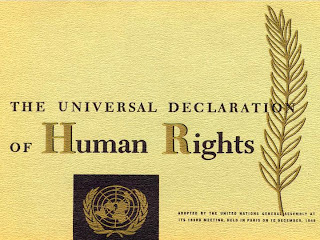 The human rights resolution introduced on 13 March came back to the full CND plenary session for debate Friday evening, and was debated for several hours. As with the debate in the Committee of the Whole on Thursday, China, Pakistan, Thailand, Egypt and Japan led the attack against the resolution.
The human rights resolution introduced on 13 March came back to the full CND plenary session for debate Friday evening, and was debated for several hours. As with the debate in the Committee of the Whole on Thursday, China, Pakistan, Thailand, Egypt and Japan led the attack against the resolution.
Countries including the UK, Argentina, Uruguay and Italy continued to strongly support the resolution.
The title of the resolution, and the wording of operational paragraph 2 (“OP2”), that requested cooperation between UNODC and the Office for the High Commissioner for Human Rights and/or other international bodies, were the major points of contention.
Significantly, Uruguay broke with the so-called “spirit of Vienna” (i.e. that all decisions at CND are made by consensus) and requested that the matter be put to a vote. This would have stopped the obstructionist tactics of the small number of countries speaking against the resolution. This call was made following a technical ploy by Thailand to bump the debate on the resolution to the bottom of the list, an attempt to essentially defer debate until the plenary ran out of time, effectively killing the resolution.
In the end this ploy failed and the resolution did come back for debate, and was adopted by consensus with some significant changes to the text.
The original title of the resolution, “Proper integration of the United Nations human rights system with international drug control policy”, was changed to "Strengthening cooperation between the UNODC and other UN bodies, including the human rights agencies in accordance with Article 2 of the 1998 UNGASS Political Declaration".
OP2 was also rewritten. It originally stated that CND “Requests the United Nations Office on Drugs and Crime to work closely towards those ends [i.e. ensuring drug control activities conform with international human rights law] with the Office of the United Nations High Commissioner for Human Rights and the special procedures of the Human Rights Council” to read instead that CND "Requests, in furtherance of this resolution, the UNODC within its existing mandate to continue to work closely with competent UN organs including UN human rights agencies".
A paragraph referring to the UN Declaration on Rights of Indigenous Peoples was also a source of debate. Canada, which along with the U.S., Australia and New Zealand had (unsuccessfully) opposed the Declaration itself before the UN General Assembly last year, had spoken against the paragraph in the debate on Thursday.
During Friday’s debate, Bolivia proposed to insert "noting where applicable the UN Declaration on the Rights of Indigenous Peoples..." (i.e., language that would have been an out for those countries that have not endorsed the Declaration). Canada and US refused to agree to this language, as did France. In the end Bolivia backed down, saying it wanted to respect the spirit of consensus, but wanted it noted on record that it opposed removal of this reference and proposed that these issues be addressed in working group(s) as part of UNGASS review. Cuba also wanted it noted in the report its concerns.
So, in the end, the CND adopted a human rights resolution that supports UNODC collaboration with UN human rights bodies. While the final language was watered down, it still represents a significant event for a UN body that has never brought discussions of human rights into its work. Clearly this weakened resolution alone is insufficient, given the scale of human rights abuses related to drug policy worldwide, but it does provide a basis for continued advocacy on human rights issues within the international drug control system.
The HR2 blog will publish the full text of both the original and final resolution when it is available.
(Thanks to Richard Elliott of the Canadian HIV/AIDS Legal Network and Rebecca Schleifer of Human Rights Watch for their reporting on Friday night's CND debate)
Tuesday, 18 March 2008
CND passes a ground-breaking - yet watered down - human rights resolution
Subscribe to: Post Comments (Atom)



0 comments:
Post a Comment